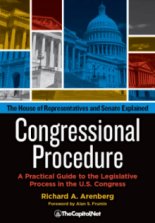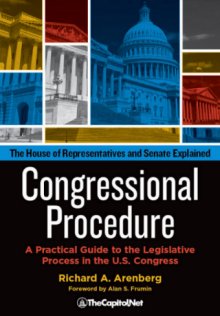Congressional Budget and Impoundment Control Act of 1974 (CongressionalGlossary.com)
From the Congressional Glossary – Including Legislative and Budget Terms Congressional Budget and Impoundment Control Act of 1974 The 1974 Congressional Budget and Impoundment Control Act (Pub.L. 93-344, 88 Stat. 297, July 12, 1974) 2 U.S.C. Chapter 17A, Congressional Budget and Fiscal Operations) requires the House and Senate each year to adopt a concurrent resolution … Read more





